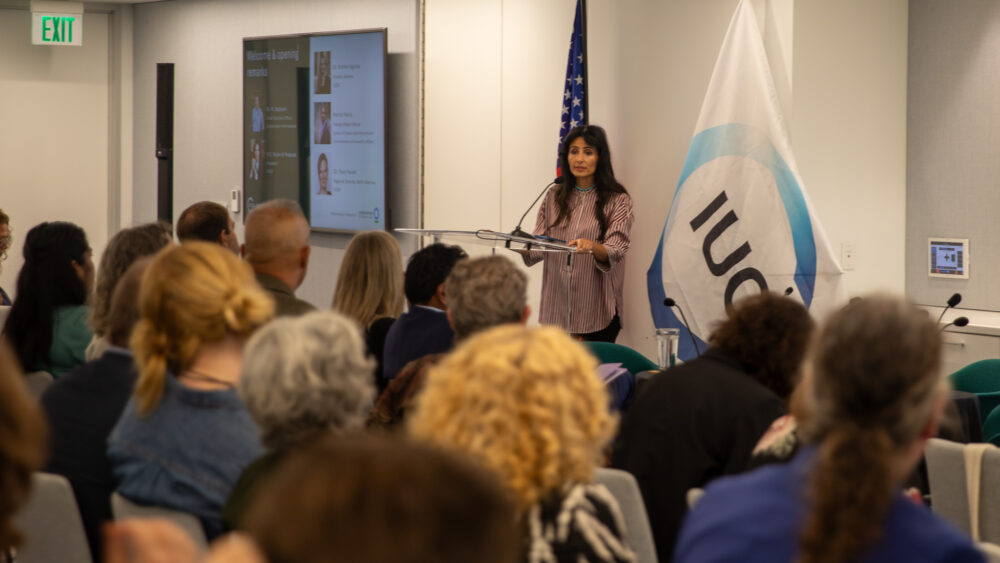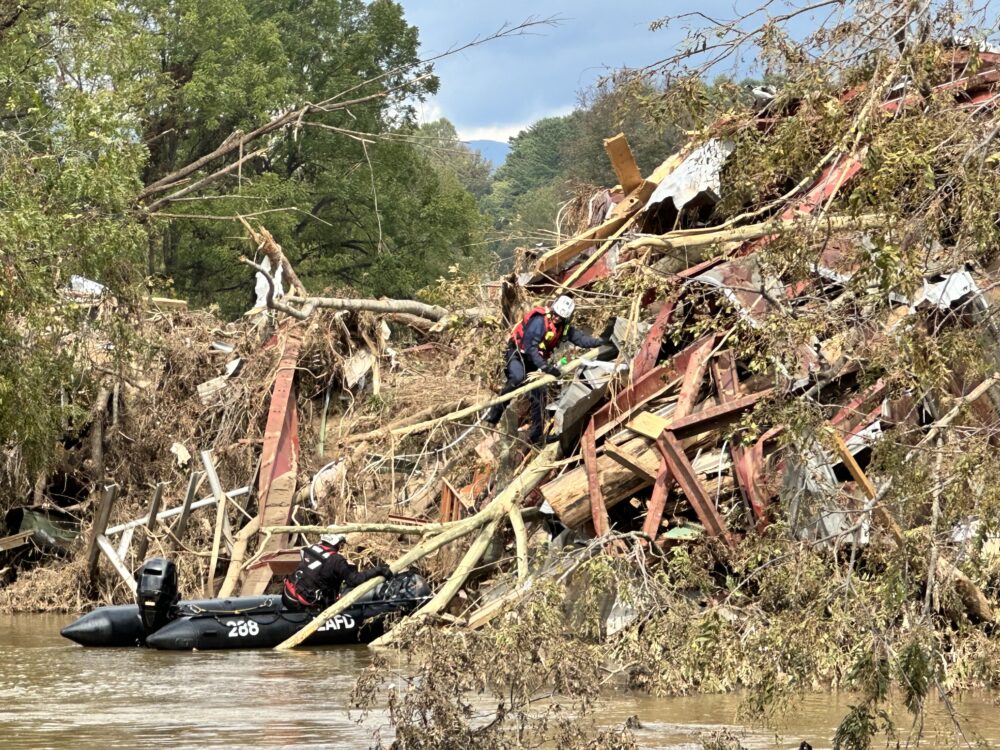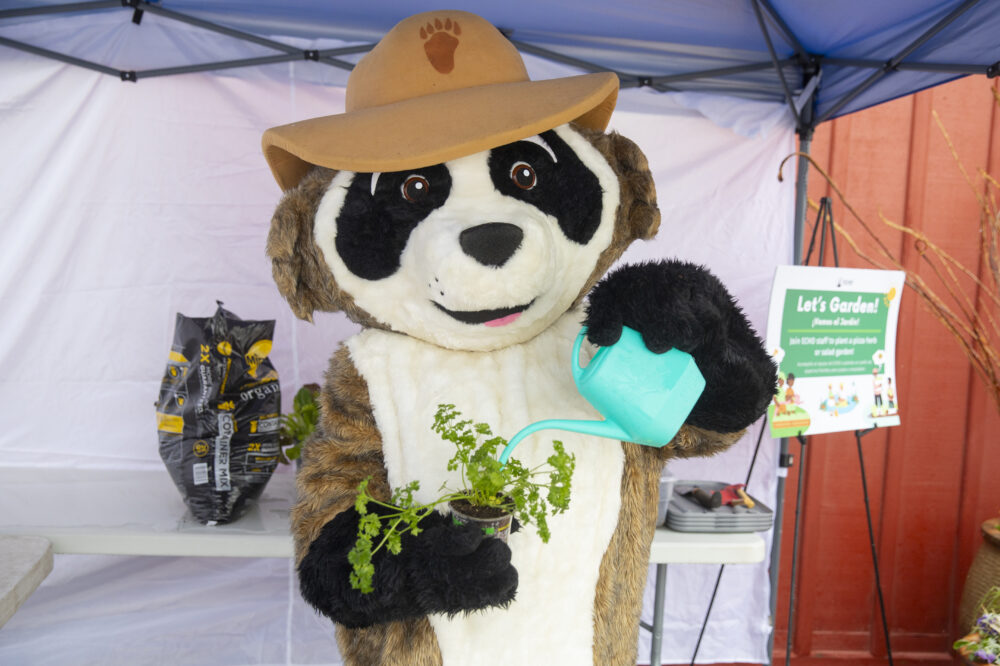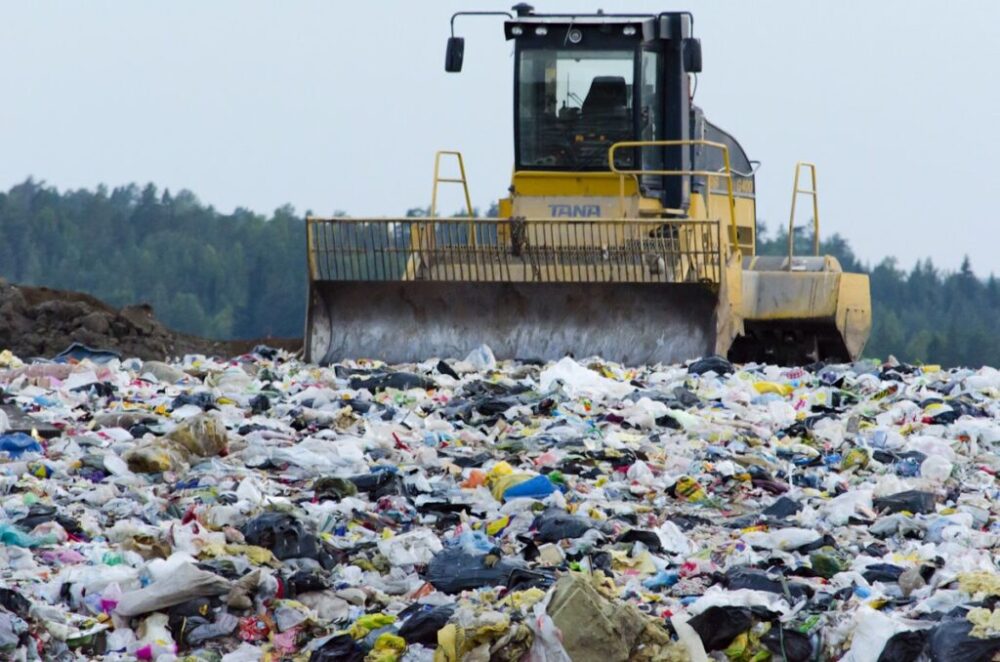We have much more to do and your continued support is needed now more than ever.
Portland-Montreal Pipeline Trek Wrap Up
Guest post by Brett Chamberlin
Monday marked the end of Kaity Thomson and Brett Chamberlin’s traverse of the Portland-Montreal Pipeline, a journey that brought them across Vermont, New Hampshire, and Maine. Kaity, a student at the University of New Hampshire, has been researching ecosystems at risk of contamination by tar sands along the route of the pipeline. The project, which we’ve been calling the #PipeHike, gave her a chance to experience firsthand these ecosystems and the communities that benefit from them.
Kaity told me about the four types of ecosystem services that we all benefit from, all of which are placed at risk by pipelines like this one. The first is provisioning; we take food, water, and many more resources from ecosystems. The second is cultural; we enjoy recreational, intellectual, and spiritual use of ecosystems. The third is regulatory; ecosystems provide a number of important functions like water filtration, waste decomposition, and so on. The last is supportive; describing the way in which complex and sometimes fragile ecosystems maintain themselves to continue providing the other services.
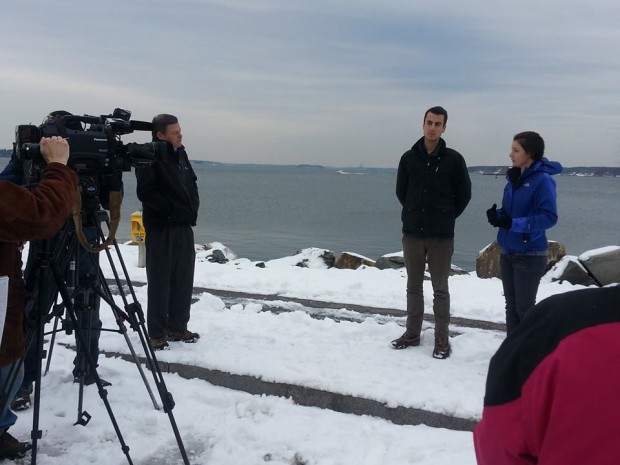
We visited Sebago Lake, a 12-mile long lake that provides drinking water to 15% of the Maine’s population. The pipeline passes beneath a summer community at the tip of the lake. If a spill happened there, about 200,000 people’s drinking water would be contaminated.
We hiked through Victory State Forest in Vermont, a fragile boreal forest that’s host to a number of endangered species. From the top of a hill, we could see the pipeline’s clearcut right-of-way stretching into the distance. If a spill happened here, a precious ecosystem would be ruined.
We ended our weeklong journey in South Portland – the heart of the battle against tar sands in this area. The pipeline runs straight through the small city, carrying tar sands crude from tankers that unload at the port. Oil is also pumped into dozens of enormous tanks that dot the city, squat toxic towers that sit besides homes, schools and churches.
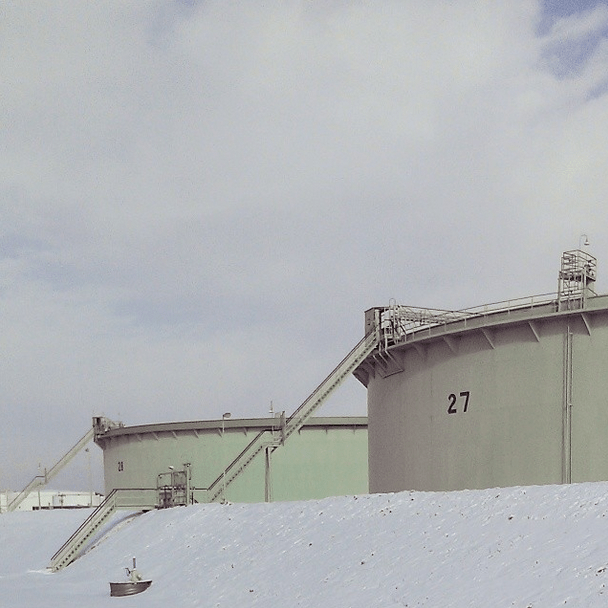
This past November, Protect South Portland led a campaign for a ballot initiative which would block the pipeline company’s construction of infrastructure required to pump tar sands out of the Port of South Portland. Political action groups opposed to the initiative outspent the anti-tar-sands organizers four to one.
A few weeks before the vote, Rachel, who immigrated to America from Great Britain in 1966, gained her citizenship so that she could vote. She was the first to cast her ballot when the polls opened. Unfortunately, the initiative narrowly failed. Many voters voiced the position that though they opposed tar sands, they were concerned that the language of the resolution would have unintended negative effects on local businesses.
Happily, the city council decided to act. They placed a moratorium on the export of tar sands through South Portland, and are developing a permanent city ordinance which they hope to send to voters in May.
This story could well have a happy ending. Preventing the export of tar sands through New England would be a major victory. Decommissioning the aging Portland-Montreal Pipeline would be even better.
But now, Kaity and I have seen firsthand how this could end in disaster. At the start of the trek, Kaity shared one professor’s statement about tar sands pipelines: “it’s not a question of if it breaks. It’s a matter of where, and when.”
It’s not a question of if the Portland-Montreal Pipeline will break. It’s how long do we have, and what will we lose?
Speak up for Northeast Wildlife
![]() Help protect moose from dirty fuels. Tell the State Department to stop the Northeast tar sands pipeline.
Help protect moose from dirty fuels. Tell the State Department to stop the Northeast tar sands pipeline.
About the authors
NWF Campus Ecology Fellow Kaity Thomson and her companion Brett Chamberlin are blogging their weeklong trek along the route of the Portland-Montreal Pipeline (by foot, cross country skis, and snow shoes!) to meet with community members and experience the habitats at risk of a spill. Kaity and Brett will also be live-tweeting their adventure—follow them on twitter at @99brett and @kaityt18, and join in on the conversation by using the hashtags: #PMPL or #PipeHike
 Brett Chamberlin is a recent graduate of New York University, where he studied politics and journalism. A NH native, Brett has organized a variety of viral projects around economic and environmental justice issues. His writing and activism have been appeared on NHPR, The Nation, BuzzFeed, The Village Voice, and more. Brett is now working as a founder of the Post-Landfill Action Network, a nonprofit helping students end waste on campus. He’s also an avid twitter user at @99Brett
Brett Chamberlin is a recent graduate of New York University, where he studied politics and journalism. A NH native, Brett has organized a variety of viral projects around economic and environmental justice issues. His writing and activism have been appeared on NHPR, The Nation, BuzzFeed, The Village Voice, and more. Brett is now working as a founder of the Post-Landfill Action Network, a nonprofit helping students end waste on campus. He’s also an avid twitter user at @99Brett
 Kaity Thomson is pursuing a BSc in Environmental Science at the University of New Hampshire. Initially leaving home to study dance in New York City, Kaity quickly came to realize the importance of the natural landscape she left behind. Transferring home to NH, she was driven to understand the environment and learn how to effectively communicate its importance. Currently, Kaity is researching potential impacts of a tar sands pipeline in New England. Her research and outreach is supported by the National Science Foundation and National Wildlife Federation Campus Ecology Fellowship.
Kaity Thomson is pursuing a BSc in Environmental Science at the University of New Hampshire. Initially leaving home to study dance in New York City, Kaity quickly came to realize the importance of the natural landscape she left behind. Transferring home to NH, she was driven to understand the environment and learn how to effectively communicate its importance. Currently, Kaity is researching potential impacts of a tar sands pipeline in New England. Her research and outreach is supported by the National Science Foundation and National Wildlife Federation Campus Ecology Fellowship.


